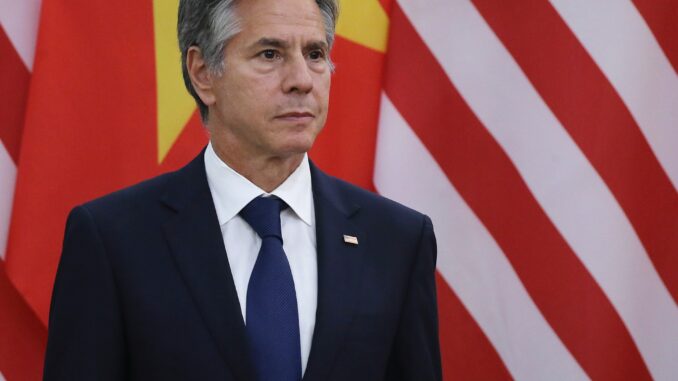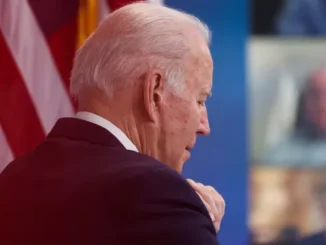
The administration of United States President Joe Biden has cleared the way for the release of five American citizens detained in Iran by issuing a blanket waiver for international banks to transfer $6bn in frozen Iranian money from South Korea to Qatar without fear of sanctions.
In addition, as part of the deal, the administration has agreed to release five Iranian citizens held in the US.
US Secretary of State Antony Blinken signed off on the sanctions waivers late last week, a month after US and Iranian officials said an agreement in principle was in place. Congress was not informed of the waiver decision until Monday, according to the notification, which was obtained by The Associated Press.
The outlines of the deal had been previously announced and the waiver was expected. But the notification marked the first time the administration said it was releasing five Iranian prisoners as part of the deal. The prisoners have not been named.
The waiver drew criticism from Republicans and others who say the deal will boost the Iranian economy at a time when that country poses a growing threat to US troops and allies in the Middle East.
On X, the platform formerly known as Twitter, Senator Chuck Grassley of Iowa said: “It’s ridiculous for US to be blackmailed into paying $6B for hostages which will help indirectly finance the number 1 foreign policy of Iran: terrorism.”
Senator Tom Cotton of Arkansas, meanwhile, accused Biden of “paying ransom to the world’s worst state sponsor of terrorism”.
The waiver means that European, Middle Eastern and Asian banks will not run afoul of US sanctions in converting the money frozen in South Korea and transferring it to Qatar’s central bank, where it will be held for Iran to use for the purchase of humanitarian goods.
The transfer of the $6bn was the critical element in the prisoner release deal, which saw four of the five American detainees transferred from Iranian jails into house arrest last month. The fifth detainee had already been under house arrest.
Due to numerous US sanctions on foreign banks that engage in transactions aimed at benefitting Iran, several European countries had baulked at participating in the transfer. Blinken’s waiver is aimed at easing their concerns about any risk of US sanctions.
People familiar with negotiations said they expect the detainees will be released as early as next week.
The American prisoners include Siamak Namazi, who was detained in 2015 and later sentenced to 10 years in prison on internationally criticised spying charges; Emad Sharghi, a venture capitalist sentenced to 10 years; and Morad Tahbaz, a British-American conservationist of Iranian descent who was arrested in 2018 and also received a 10-year sentence. The fourth and fifth prisoners were not identified.
“To facilitate their release, the United States has committed to release five Iranian nationals currently held in the United States and to permit the transfer of approximately $6 billion in restricted Iranian funds held in [South Korea] to restricted accounts in Qatar, where the funds will be available only for humanitarian trade,” Blinken wrote.
The sanctions waiver applies to banks and other financial institutions in South Korea, Germany, Ireland, Qatar and Switzerland.
“I determine that it is in the national security interest of the United States to waive the imposition of sanctions,” Blinken wrote, identifying the countries in question.
The sanctions waivers apply to transactions involving previously penalised entities such as the National Iranian Oil Company and the Central Bank of Iran.
Blinken wrote that the waivers would allow them “to transfer funds from accounts in the Republic of Korea to accounts in Switzerland and Germany and from accounts in Switzerland and Germany to accounts in Qatar, and to use the transferred funds for further humanitarian transactions in accordance with written guidance from the US Government”.
US Secretary of State Antony Blinken issued the sanction waivers last week as part of an ongoing prisoner transfer deal.
ENB Top News
ENB
Energy Dashboard
ENB Podcast
ENB Substack



